Caban: People living with dementia and carers making a difference
People living with dementia and their family carers have been meeting students and researchers at Bangor University as the “Caban group” since 2017.
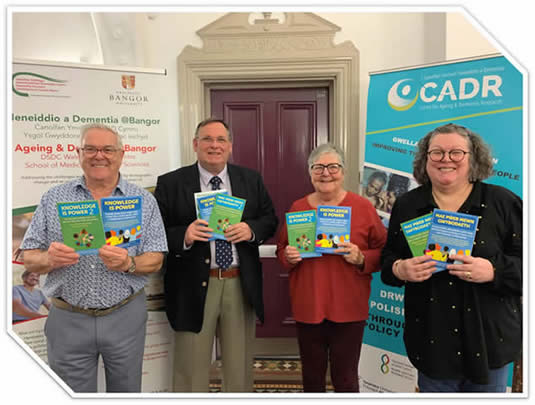
The Caban group work closely with the academic staff and students at the School of Health Sciences and the North Wales Medical School to help undergraduate and postgraduate students and researchers understand what is important to people living with dementia, and how best to support them.
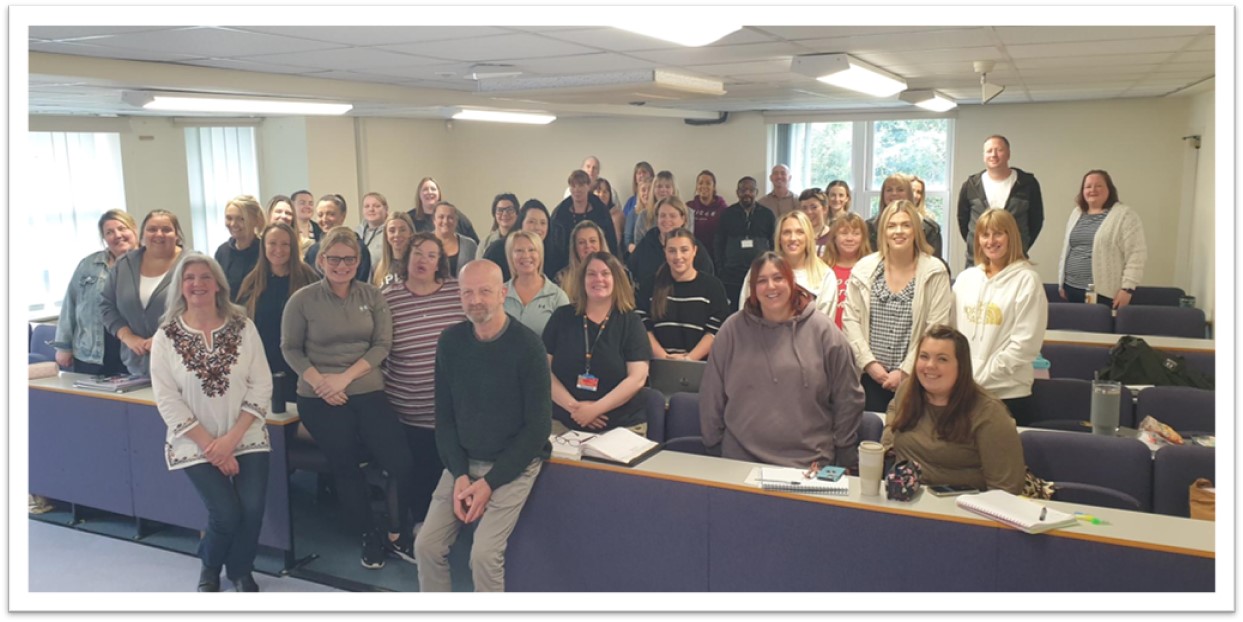
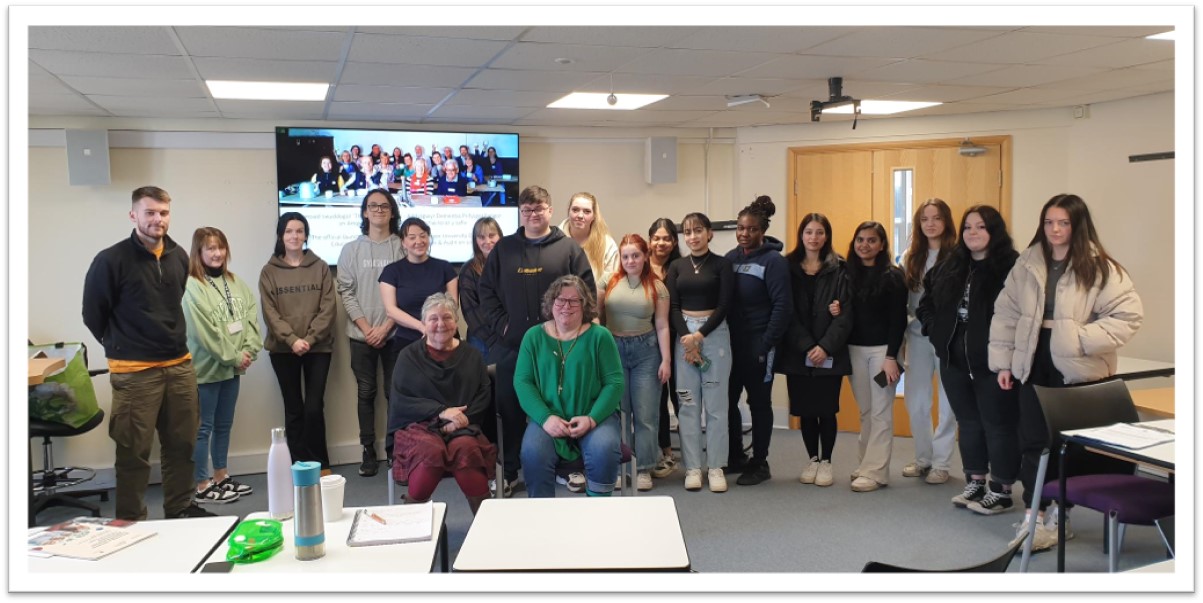
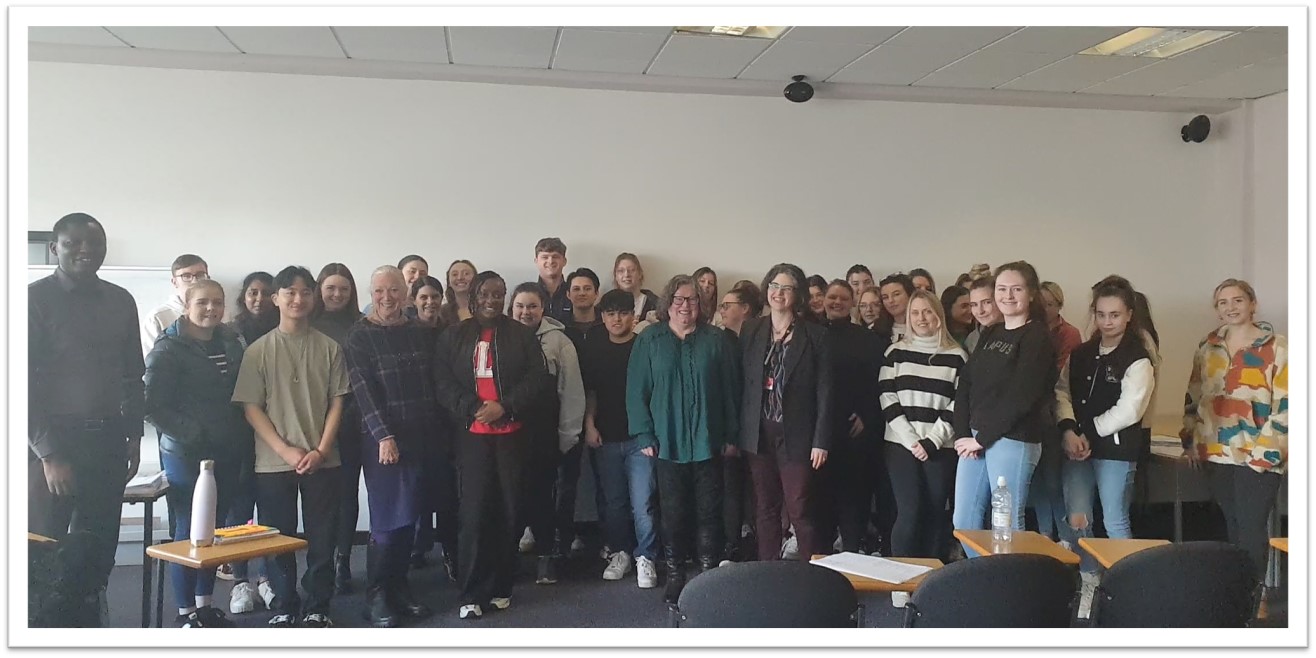
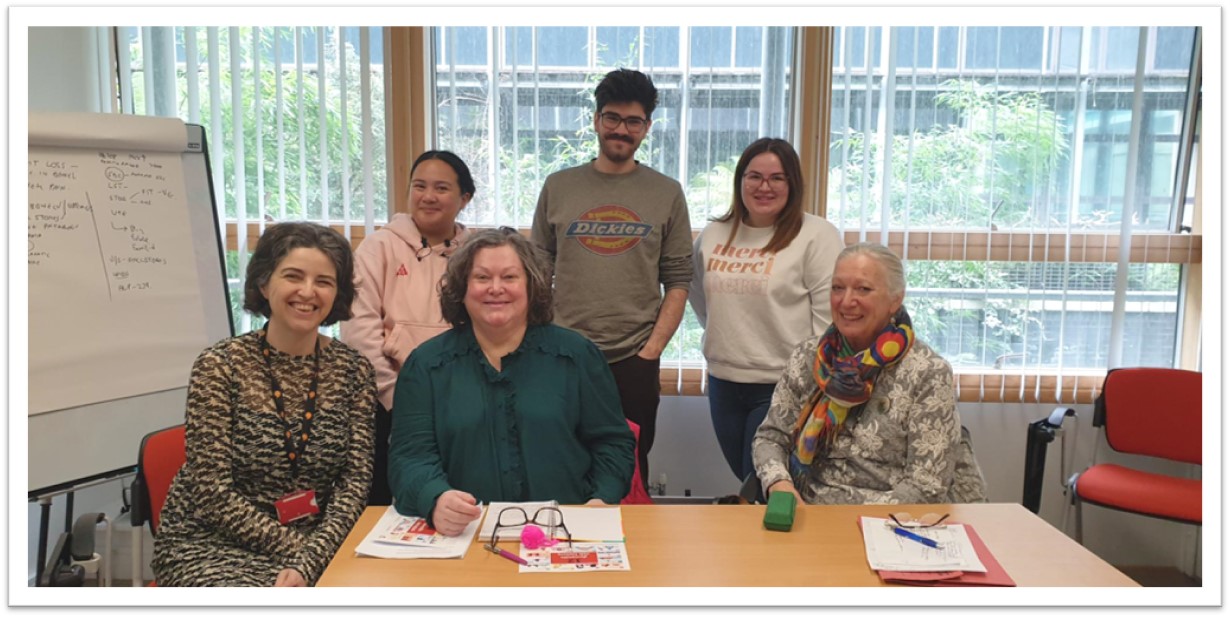
Members have also educated the current and future health and social care workforce through awareness sessions, consultations and presentations in small groups, training events and conferences. They have also performed dementia audits for public spaces such as the National Slate Museum, sharing their experiences of a place to guide improvements.
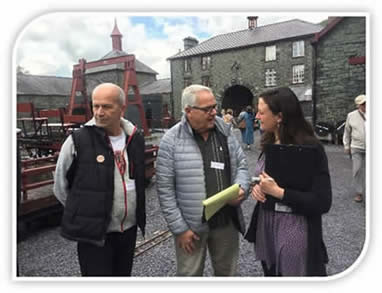
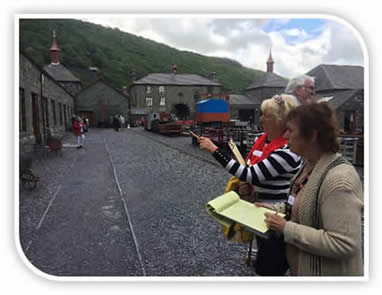
Please click HERE to see some videos by the Caban group, including their ‘top tips’ for anyone newly diagnosed with dementia, and the value of peer support.
Current members say:
“Bangor University have been lifesavers, I do training sessions for the students and it feels like I’m making a difference. Feeling valued and like you’re contributing is really important for maintaining mental health and well-being”.
“I was a bit dubious at first but found out that I enjoyed getting involved in research and it is something I can do. I felt absolutely valued again and actually felt like I was contributing to society again”.
What could I do if I join?
- Join conversations with students or researchers.
- Help create resources for other people with dementia.
- Sessions can be in Bangor or on-line.
- You choose how much you want to be involved and in which way.
- Expenses are paid.
Everyone’s diagnosis and experience of living with dementia is different. Our students and researchers would like to learn from your experiences to improve our understanding of how to support you to live as well as possible with dementia.
Please contact Catrin Hedd Jones for an informal chat:
- Tel: +44 (0)1248 388872
- e-mail: c.h.jones@bangor.ac.uk





